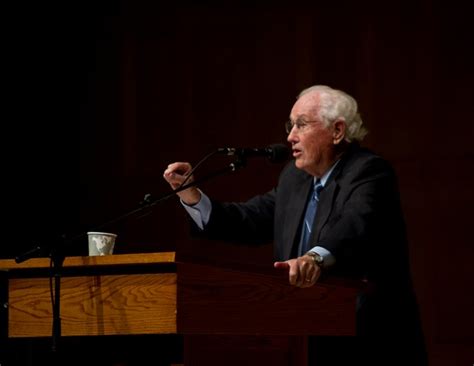A Quote by Charles Darwin
A man who has no assured and ever present belief in the existence of a personal God or of a future existence with retribution and reward, can have for his rule of life, as far as I can see, only to follow those impulses and instincts which are the strongest or which seem to him the best ones
Related Quotes
I know no study which is so unutterably saddening as that of the evolution of humanity, as it is set forth in the annals of history. Out of the darkness of prehistoric ages man emerges with the marks of his lowly origin strong upon him. He is a brute, only more intelligent than the other brutes, a blind prey to impulses, which as often as not led him to destruction; a victim to endless illusions, which make his mental existence a terror and a burden, and fill his physical life with barren toil and battle.
Upon this law, depend the natural rights of mankind, the supreme being gave existence to man, together with the means of preserving and beatifying that existence. He endowed him with rational faculties, by the help of which, to discern and pursue such things, as were consistent with his duty and interest, and invested him with an inviolable right to personal liberty, and personal safety.
The assumed instinctive belief in God has been used by many persons as an argument for his existence. But this is a rash argument, as we should thus be compelled to believe in the existence of many cruel and malignant spirits, only a little more powerful than man; for the belief in them is far more general than in a beneficent deity.
Sören Kierkegaard has another answer: human existence is possible as existence not in despair, as existence not in tragedy; it is possible as existence in faith... Faith is the belief that in God the impossible is possible, that in Him time and eternity are one, that both life and death are meaningful.
There is an earthly sun, which is the cause of all heat, and all who are able to see may see the sun; and those who are blind and cannot see him may feel his heat. There is an Eternal Sun, which is the source of all wisdom, and those whose spiritual senses have awakened to life will see that sun and be conscious of His existence; but those who have not attained spiritual consciousness may yet feel His power by an inner faculty which is called Intuition.
If God really became incarnate, and if His Incarnation can with justice compel man to change his life,then we have no alternative but to conceive of this Incarnation as something which is still present and which will remain present for all future time. ... What happens in the liturgical celebration of the Eucharist is something for which all religions of mankind have exressed longing, dimly sensed was coming, and as a rule even prefigured- the physical presence of the divine Logos made man, and the presence of his sacrificial death, in the midst of the congregation celebrating the mysteries.
What do you conceive God to be like? Some would say to believe at all in a personal God requires a giant leap of faith - but I am convinced that belief in God is a far more reasonable position than atheism. Nature, the personal experience of literally billions of people, and something innate in the heart of man all testify to the existence of God.
The pitch to which he was aroused was tremendous. All the fighting blood of his breed was up in him and surging through him. This was living., though he did not know it. He was realizing his own meaning in the world; he was doing that for which he was made.... He was justifying his existence, than which life can do no greater; for life achieves its summit when it does to the uttermost that which it was equipped to do.
I do not deny God, because that word conveys to me no idea, and I cannot deny that which presents to me no distinct affirmation, and of which the would-be affirmer has no conception. I cannot war with a nonentity. If, however, God is affirmed to represent an existence which is distinct from the existence of which I am a mode, and which it is alleged is not the noumenon of which the word I represents only a speciality of phenomena, then I deny God, and affirm that it is impossible God can be.
There are three points of doctrine the belief of which forms the foundation of all morality. The first is the existence of God; the second is the immortality of the human soul; and the third is a future state of rewards and punishments. Suppose it possible for a man to disbelieve either of these three articles of faith and that man will have no conscience, he will have no other law than that of the tiger or the shark. The laws of man may bind him in chains or may put him to death, but they never can make him wise, virtuous, or happy.
Each thing that exists remains forever, and that very existence of existence is proof of its eternity. But without that realization, which is the knowledge of perfect being, man would never know whether there was existence or non-existence. If eternal existence is altered, then it must become more beautiful; and if it disappears, it must return with more sublime image; and if it sleeps, it must dream of a better awakening, for it is ever greater upon its rebirth.



































